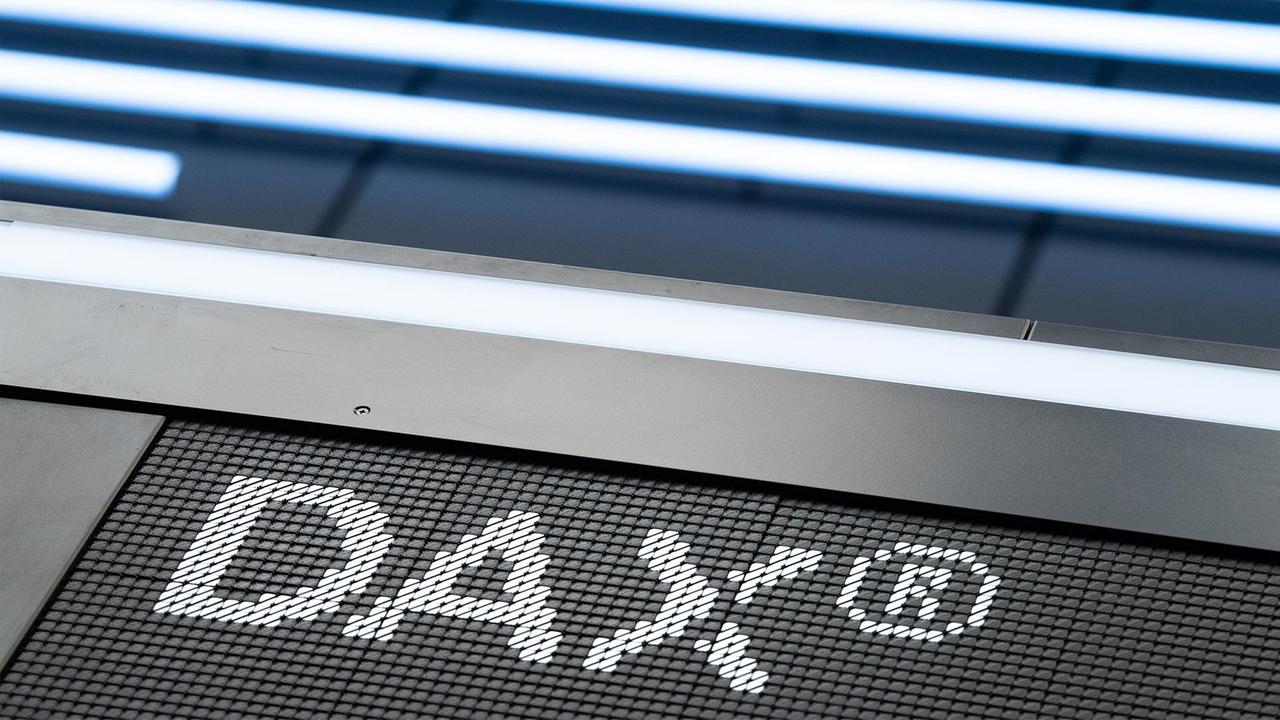market report
What will happen to the economy in America? On the stock market, investors are waiting for the US producer prices this afternoon and the US inflation data tomorrow. The DAX is likely to start the day little changed today.
On the second trading day of the week, the German stock index is likely to make little progress and remain within the narrow range of the previous day. Investors are primarily waiting for important economic data from the USA. The broker IG estimates the German leading index to be 0.1 percent higher at 17,749 points before the Xetra start. Yesterday, the DAX closed with a mini-plus of 0.02 percent at 17,722 points.
Markets are now looking ahead to key US economic data this week, including producer price inflation this afternoon, consumer price inflation tomorrow and retail sales on Thursday, which could provide further insight into the state of the US economy.
The fresh economic data could provide insights into the monetary policy course that the US Federal Reserve is likely to take after fears of a recession caused turbulence on the stock markets last week. Experts such as Viktor Shvets of Macquarie Capital see the recent volatility as a temporary phenomenon and not a harbinger of a deeper crisis. “We also believe that nervousness about a slowdown in the US economy is exaggerated,” says Shvets.
In Germany, the ZEW index provides information on the mood of German stock market professionals during the course of the day. Experts expect the barometer to fall significantly to 36.8 points from 41.8 points. The mood of stock market professionals had already deteriorated in July.
After the recent rollercoaster ride, investors on Wall Street started the new trading week cautiously yesterday ahead of the important economic data. The US standard value index Dow Jones closed yesterday down 0.4 percent at 39,357 points. The broader S&P 500 was barely changed at 5,344 points and the technology-heavy Nasdaq rose 0.2 percent to 16,781 points.
Markets in Asia, however, are seeing gains today, with Japanese stocks leading the rally thanks to a stable yen. The Nikkei index in Tokyo rose more than three percent after the stock market was closed yesterday for a holiday. In Tokyo, the 225-stock Nikkei index rose 3.1 percent to 36,124 points, while the broader Topix was 1.8 percent higher. “The Nikkei is likely to remain stable throughout the day,” said Maki Sawada, equity strategist at Nomura Securities. “Whether the Nikkei can recover above 36,000 is one of the key questions.”
Mainland Chinese stocks and the Hong Kong Hang Seng Index were almost unchanged in early trading. The Shanghai Stock Exchange was almost unchanged at 2,861 points. The index of the most important companies in Shanghai and Shenzhen stagnated at 3,324 points.
Meanwhile, oil prices fell in early trading, ending a five-day winning streak as the focus returned to demand concerns. OPEC yesterday lowered its forecast for demand growth in 2024 due to weaker expectations in China. Investors continue to closely monitor the escalating conflict in the Middle East, which could lead to a shortage of global crude oil supplies. On the commodity market, North Sea Brent crude fell 0.8 percent to $81.65 per barrel (159 liters). US WTI crude was 0.8 percent weaker at $79.44.
The live conversation between tech billionaire Elon Musk and Republican presidential candidate Donald Trump has been plagued by technical problems. The live stream on Musk's online platform X, formerly Twitter, started around 45 minutes late. At first it was repeatedly unavailable. Musk claimed on X that the platform had been the target of a massive DDOS attack. In such attacks, websites are bombarded with large numbers of requests so that they collapse. Musk announced that if necessary he would speak to Trump live in front of a small number of listeners and then publish a recording.
HelloFresh has compensated for the slump in demand for its cooking boxes thanks to a significant increase in interest in ready meals. Revenues rose by almost two percent to 1.95 billion euros in the second quarter compared to the previous year, according to the Berlin MDAX group. In addition to the sales hopes of ready meals, Hellofresh was also able to increase the number of more expensive meals and additional products – this drove up the average order value, while the number of orders and meals continued to decline. The bottom line was that the group earned 8.9 million euros, compared to 66.3 million euros in the previous year.
The energy company RWE has secured two large offshore wind areas in the North Sea for 250 million euros at an auction held by the Federal Network Agency. Wind turbines with a capacity of two gigawatts could be built on the areas 110 and 115 kilometers northwest of Borkum, the utility announced. RWE wants to examine the possibilities of joint development with the French energy company TotalEnergies. Investment decisions are to be examined by 2027 and 2028 respectively. Full commissioning is targeted for 2031 and 2032 respectively.
TAG Immobilien almost made it back into the black in the first half of the year thanks to stable rentals and numerous sales. The bottom line was a loss of 7.1 million euros, according to the MDAX-listed company. In the same period last year, the loss was 304.7 million euros. TAG confirmed its annual forecasts. From January to the end of June, the real estate group sold around 880 apartments in Germany.
Essen-based chemicals distributor Brenntag earned less in the second quarter due to weak demand. With sales falling by two percent to EUR 4.17 billion, operating profit (Ebita) fell by ten percent to EUR 297.1 million. Despite all efforts to improve cost structures, overall performance was “unsatisfactory” and below target. “We must and will therefore increase our efforts to improve our business performance and will implement a strong, prioritized cost reduction across our entire organization,” announced CEO Christian Kohlpaintner. The board had already scrapped its annual targets the evening before.
Thyssenkrupp's hydrogen subsidiary Nucera is struggling with customer reluctance, but has confirmed its targets for the current fiscal year. “Despite new projects, growth momentum was significantly slowed in the third quarter due to the prevailing uncertainty on the green hydrogen market,” the company explained. Order intake increased by twelve percent to 271 million euros in the third quarter, but after nine months it was two percent lower than in the same period last year at 522 million euros. As with sales, the main driver was again the area of alkaline water electrolysis (AWE), which can be used to produce green hydrogen. Earnings before interest and taxes (EBIT) shrank to 0.7 million euros from 7.0 million euros previously, partly due to increased research and development costs.




